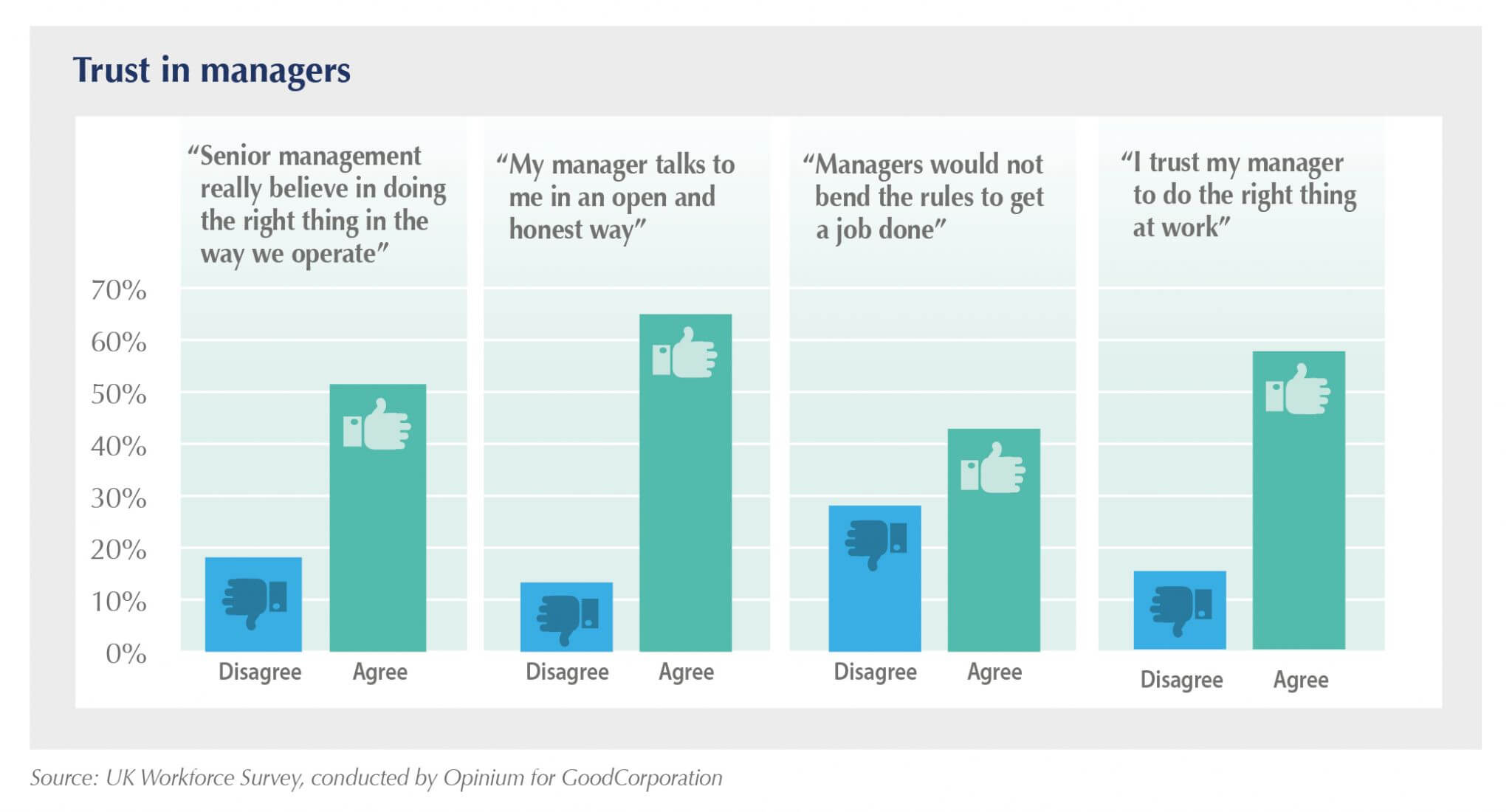Measuring ethical culture
Papers and reports | read time: 2 min
Published: 20 June 2018

Over a quarter of the UK workforce believe their managers would bend the rules if necessary to get the job done, according to a report published by business ethics advisers GoodCorporation. The report also finds that only half the UK workforce felt able to say that senior managers really believe in doing the right thing, with one in five actively disagreeing.

GoodCorporation’s paper Measuring Ethical Culture examines the need for businesses to establish a strong corporate culture, highlighting the risks to organisations that fail in this area and the benefits to those that succeed. Click here to download your copy.
Risks of a poor corporate culture
As the Financial Reporting Council (FRC) states in its Proposed Revisions to the UK Corporate Governance Code, poor culture is a business risk in itself. For this reason, the FRC recommends that boards should seek assurances about the health of their company’s culture by ‘taking the temperature’ on a regular basis. Yet in a survey of the FTSE 350 , only 19% of board members felt that the primary accountability for culture sat with them.
The impact of poor culture on share price is noticeable and long-term. As such shareholders, boards and senior managers should put good culture at the centre of long-term business success. However, although good corporate governance suggests that establishing the culture, values and ethics of a company is a core responsibility of the board, very few take steps to review their corporate culture, let alone assess whether it promotes behaviours that would protect their organisation from risk.
Raising concerns about workplace culture
In addition to the findings around bending the rules and doing the right thing, the survey also found that almost one fifth of the UK labour force said they would not feel comfortable raising issues of poor or unethical behaviour. An equal number indicated that if they did raise an issue, it would not be dealt with fairly.
However, more encouragingly three fifths of the workers sampled think their organisation has a strong ethical culture (59%) and are proud to tell people who they work for (60%).
Measuring Ethical Culture draws on the findings of a nationwide survey, covering 2000 UK workers from a representative range of backgrounds and seniority levels. The survey examined responses to 25 carefully chosen statements that GoodCorporation has identified as the key indicators of an ethical corporate culture. The paper also reveals GoodCorporation’s methodology for undertaking an Ethical Culture Healthcheck. It explains how a net ethical culture score can be calculated using the survey findings to create a national benchmark against which a company’s culture can be judged good, average or poor.
Key findings include: –
• Company size can be significant when it comes to establishing an ethical company culture. Employees in micro (73%) and small businesses (68%) were more likely to report being proud to say they worked for their organisations than employees in large organisations (57%).
• Employees were more likely to report being treated with respect in micro organisations (76%) and small organisations (75%) than in large organisations (67%).
• The difference in response between managers (308 senior management responses) and employees (1,378) was also marked, with managers around twenty percentage points more likely to say their organisation has a strong ethical culture.
work with us